Related Research Articles
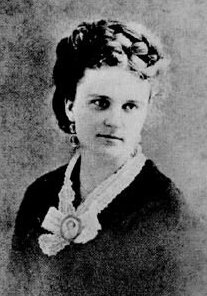
Kate Chopin was an American author of short stories and novels based in Louisiana. She is considered by scholars to have been a forerunner of American 20th-century feminist authors of Southern or Catholic background, such as Zelda Fitzgerald, and she is one of the more frequently read and recognized writers of Louisiana Creole heritage. She is best known today for her 1899 novel The Awakening.

Harriet Jacobs was an African-American abolitionist and writer whose autobiography, Incidents in the Life of a Slave Girl, published in 1861 under the pseudonym Linda Brent, is now considered an "American classic". Born into slavery in Edenton, North Carolina, she was sexually harassed by her enslaver. When he threatened to sell her children if she did not submit to his desire, she hid in a tiny crawl space under the roof of her grandmother's house, so low she could not stand up in it. After staying there for seven years, she finally managed to escape to the free North, where she was reunited with her children Joseph and Louisa Matilda and her brother John S. Jacobs. She found work as a nanny and got into contact with abolitionist and feminist reformers. Even in New York City, her freedom was in danger until her employer was able to pay off her legal owner.
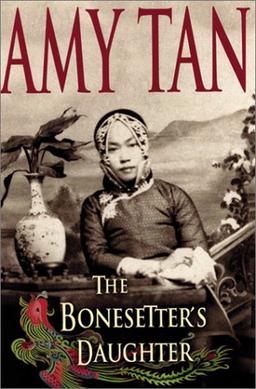
The Bonesetter's Daughter, published in 2001, is Amy Tan's fourth novel. Like much of Tan's work, this book deals with the relationship between an American-born Chinese woman and her immigrant mother.

Incidents in the Life of a Slave Girl, written by herself is an autobiography by Harriet Jacobs, a mother and fugitive slave, published in 1861 by L. Maria Child, who edited the book for its author. Jacobs used the pseudonym Linda Brent. The book documents Jacobs's life as a slave and how she gained freedom for herself and for her children. Jacobs contributed to the genre of slave narrative by using the techniques of sentimental novels "to address race and gender issues." She explores the struggles and sexual abuse that female slaves faced as well as their efforts to practice motherhood and protect their children when their children might be sold away.

Inessa Fyodorovna Armand was a French-Russian communist politician, member of the Bolsheviks and a feminist who spent most of her life in Russia. Armand, being an important figure in pre-Revolution Russian communist movement and early days of the communist era, had been almost forgotten for a long time until the partial opening of Soviet archives during the 1990s. Historian Michael Pearson wrote about her: "She was to help him (Lenin) recover his position and hone his Bolsheviks into a force that would acquire more power than the tsar, and would herself by 1919 become the most powerful woman in Moscow."
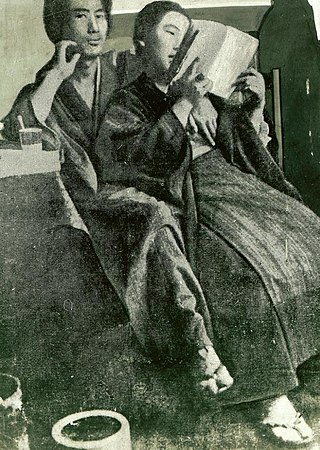
Fumiko Kaneko or rarely Park Fumiko and Park Munja, was a Japanese anarchist and nihilist. She was convicted of plotting to assassinate members of the Japanese Imperial family.
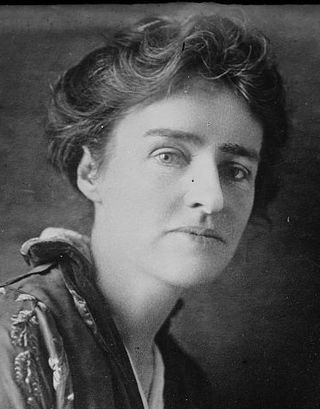
Jean Webster was the pen name of Alice Jane Chandler Webster, an American author whose books include Daddy-Long-Legs and Dear Enemy. Her best-known books feature lively and likeable young female protagonists who come of age intellectually, morally, and socially, but with enough humor, snappy dialogue, and gently biting social commentary to make her books palatable and enjoyable to contemporary readers.
Spider Grandmother is an important figure in the mythology, oral traditions and folklore of many Native American cultures, especially in the Southwestern United States.

My Correct Bedtime Stories: Modern Tales for Our Life and Times is a 1994 book written by American writer James Finn Garner, in which Garner satirizes the trend toward political correctness and censorship of children's literature, with an emphasis on humour and parody. The bulk of the book consists of fairy tales such as Little Red Riding Hood, the Three Little Pigs and Snow White, rewritten so that they represent what a politically correct adult would consider a good and moral tale for children.

Mary: A Fiction is the only complete novel by 18th-century British feminist Mary Wollstonecraft. It tells the tragic story of a female's successive "romantic friendships" with a woman and a man. Composed while Wollstonecraft was a governess in Ireland, the novel was published in 1788 shortly after her summary dismissal and her decision to embark on a writing career, a precarious and disreputable profession for women in 18th-century Britain.
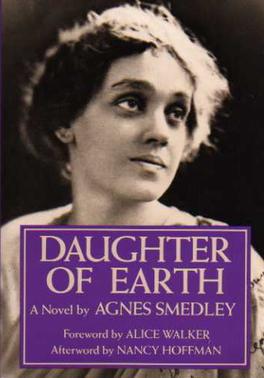
Daughter of Earth (1929) is an autobiographical novel by the American author and journalist Agnes Smedley. The novel chronicles the years of Marie Rogers's tumultuous childhood, struggles in relationships with men, time working with the Socialist Party, and involvement in the Indian independence movement.

Petals of Blood is a novel written by Ngũgĩ wa Thiong'o and first published in 1977. Set in Kenya just after independence, the story follows four characters – Munira, Abdulla, Wanja, and Karega – whose lives are intertwined due to the Mau Mau rebellion. In order to escape city life, each retreats to the small, pastoral village of Ilmorog. As the novel progresses, the characters deal with the repercussions of the Mau Mau rebellion as well as with a new, rapidly westernizing Kenya.
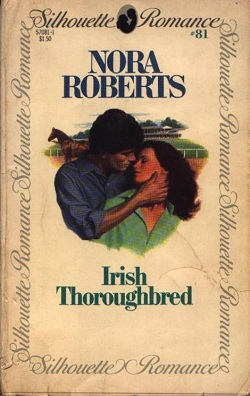
Irish Thoroughbred is American author Nora Roberts's debut novel, originally published by Silhouette in January 1981 as a category romance. Like other category romances, the novel was less than 200 pages and was intended to be on sale for only one month. It proved so popular that it was repackaged as a stand-alone romance and reprinted multiple times. Roberts wrote two sequels, Irish Rebel and Irish Rose.

Pretty Like Us is a book written by Carol Lynch Williams. It was published in 2008 by Peachtree Publishers. It is written in first person; Beauty McElwrath, a twelve-year-old girl, is the protagonist. The story is written in a southern country dialect and takes place in a small town in Florida.
City Of Light is a 1999 novel by Lauren Belfer.

Half Broke Horses is a 2009 novel by the American writer Jeannette Walls detailing the life of her grandmother, Lily Casey Smith. The book was published by Simon and Schuster.

Aalahayude Penmakkal is a Malayalam novel written by Sarah Joseph and published in 1999. The novel is the first in the trilogy which includes 'Mattathi' and 'Othappu'. This novel gave widespread recognition to Sarah Joseph and her craft. 'Aalahayude Penmakkal' won the Kerala Sahitya Academy award of 2001, Kendra Sahitya Academy award of 2003, Vayalar Ramavarma award of 2004, and Cherukad Award of 2000. The novel deals with the condition of marginalized groups in society pointed out as subalterns by Marxist Antonio Gramsci. The living and existential conditions of these groups are seldom acknowledged by the society at large and generally they are displaced from their places of stay and livelihoods, usually in the name of development and change. This transformation in their existential struggle is narrated by Annie, the central character, who gives voice to three generations of her subaltern group albeit with a feminine perspective.
The Princess is a poem by Apollon Maykov first published in the January 1878 issue of The Russian Messenger. It told the story of a young Russian girl belonging to a noble family who joined a group of radical youth fighting against the repressive state. The poem, condemned by the Russian literary left of the time, in retrospect is seen as a strong political statement attacking both the corrupt political system of mid-19th-century Russia, based on serfdom and the violent methods of undermining it, as professed by the 'nihilistic' youth of the time.

Super Nani is an Indian drama directed and produced by Indra Kumar, starring Rekha, Sharman Joshi, Randhir Kapoor, Anupam Kher and Rajesh Kumar in lead roles. The film is based on the Gujarati play, Baa Ae Maari Boundary. The music is composed by Harshit Saxena and Sanjeev-Darshan.

Liang Jun was believed to be the first female tractor driver in Communist China who later became a folk hero and model worker. She is depicted on the one yuan banknote of China's third renminbi series. She served as a politician, both provincial and national, and advisor on agricultural matters.
References
- ↑ "Books by Cherukad". Articles of Cherukad Govinda Pisharody.